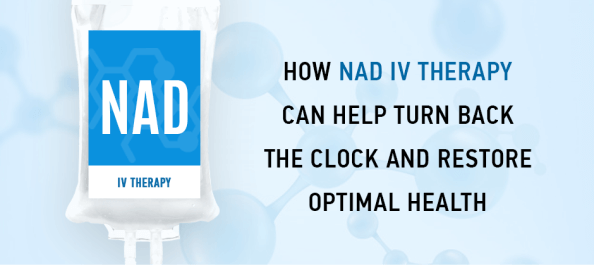
Sleep deprivation is rampant in the United States, to the extent that the Centers for Disease Control and Prevention (CDC) has declared it a national epidemic. Yet few people understand how skimping on sleep can profoundly affect their overall health.
“Getting your beauty sleep” is not just a saying – it is a fact that getting an average of seven to nine hours of sleep per night can actually help you look and feel younger and more energetic.
Despite a multitude of products on the market that promise to combat aging, your best anti-aging ally is sleep. When combined with regular NAD therapy, sleep can literally turn back the clock on your aging face and body, and protect you from multiple metabolic and neurological disorders.
Why Americans are Sleep Deprived
Many Americans – and people from other modern nations – are not getting adequate productive sleep to help them perform at their best, both physically and mentally.
Sleep deprivation is known to impair cognitive function, compromise your immune system and interfere with sound decision making. It has been linked to workplace injuries, traffic fatalities and a plethora of other tragedies. Restricted sleep is a key contributor to metabolic disorders and obesity.
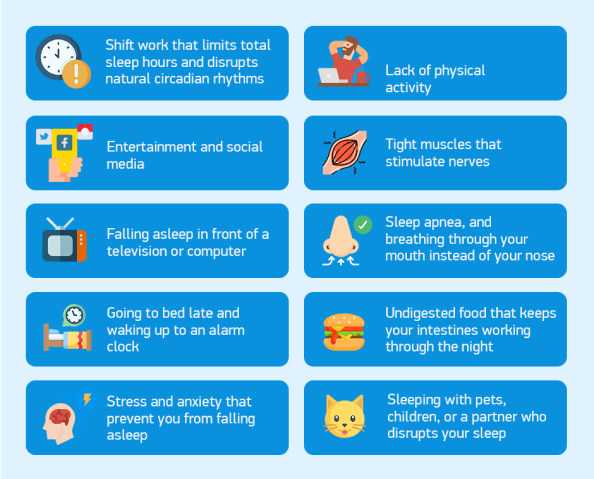
Factors influencing sleep deprivation include:
- Shift work that limits total sleep hours and disrupts natural circadian rhythms
- Entertainment and social media that keep you up late at night
- Falling asleep in front of a television or computer, interfering with deep productive sleep
- Going to bed late and waking up to an alarm clock
- Stress and anxiety that prevent you from falling asleep
- Lack of physical activity
- Tight muscles that stimulate nerves, preventing you from relaxing
- Sleep apnea, and breathing through your mouth instead of your nose
- Undigested food that keeps your intestines working through the night
- Sleeping with pets, children, or a partner who disrupts your sleep
By prioritizing sleep and taking measures to ensure good sleep hygiene, you can take charge of your health and give your body the rest it needs to detoxify, repair and rejuvenate.
How NAD Impacts Sleep, and Vice-Versa
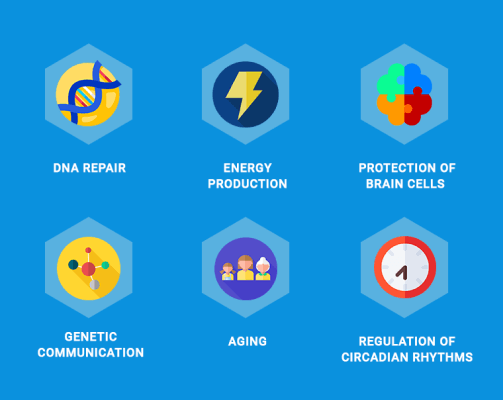
Nicotinamide adenine dinucleotide (NAD) is a molecular coenzyme that impacts multiple biological functions in the human body.
NAD plays critical roles in:
- DNA repair
- Energy production
- Protection of brain cells from oxidative stress
- Genetic communication
- Aging
- Regulation of circadian rhythms
In terms of circadian rhythms, NAD helps to regulate your sleep/wake cycles, to ensure your body reaps all the benefits of a good night’s sleep.
In addition, NAD is known to have a profound effect on mitochondrial function. A recent research review revealed that mitochondria play a critical role in sleep via certain patterns of gene and protein expression.
Mitochondria are tiny organelles located in all living cells, responsible for converting fats and carbohydrates to energy. Physically active people have more and larger cellular mitochondria, capable of producing large amounts of ATP, the energy molecule. NAD plays a key role in the citric acid cycle, a key function of the mitochondria that determines how well your body uses food for fuel.
On the flip side, inadequate sleep can profoundly impact the way your body metabolizes NAD, inhibiting its role in critical biological functions. When you fail to prioritize sleep, you are setting yourself up for a plethora of health problems that can lead to premature aging, reduced quality of life and even premature death.
NAD, Sleep and Aging
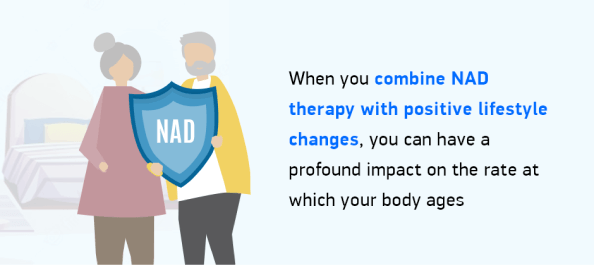
The biological process of aging is programmed into our DNA. Yet there are many lifestyle factors that accelerate the aging process and contribute to premature aging and death. As you age, your body manufactures less NAD, reducing your capacity to repair DNA and limiting your ability to produce energy in your cells’ mitochondria.
Poor diet, lack of physical activity and disrupted or restricted sleep can further deplete NAD stores, speeding up the aging process. When you combine NAD therapy with positive lifestyle changes, you can have a profound impact on the rate at which your body ages, and dramatically improve the way you look, feel and perform.
NAD, Sleep and Metabolic Disease
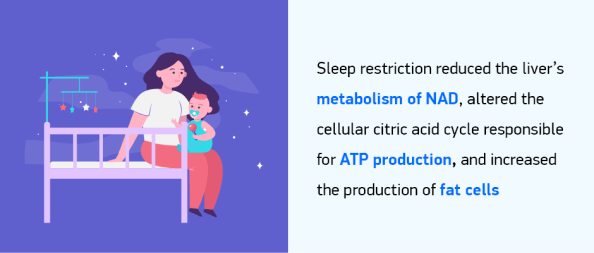
Certain metabolic disorders have long been associated with aging. Hypertension, heart disease, diabetes and kidney disease are just a few conditions that were once associated with advanced age. Today however, many of these conditions are reaching critical stages in people in their 30s and 40s, placing an overwhelming healthcare burden on society and reducing longevity and overall quality of life.
A growing body of research supports the hypothesis that sleep restriction negatively impacts metabolic health. One study restricted the sleep of laboratory rats and monitored the impact of sleep deprivation on liver function. They found that sleep restriction reduced the liver’s metabolism of NAD, altered the cellular citric acid cycle responsible for ATP production, and increased the production of fat cells, all contributing precursors to metabolic disease.
NAD, Sleep Deprivation and Neurological Disorders
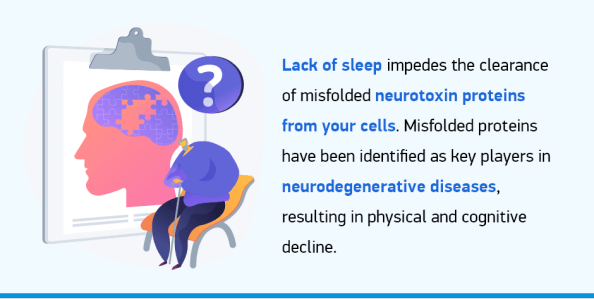
Neurological disorders encompass brain health and the way the central nervous system interacts with the body. As with metabolic disorders, conditions like multiple sclerosis, Parkinson’s and Alzheimer disease were once considered to be diseases of old age, but today they are appearing with greater frequency in middle aged adults. Recent research is finding that sleep deprivation may play a critical role in the advancement of certain neurological disorders.
Sleep helps to maintain your nervous system’s circuitry, for optimal health and wellbeing. Disruptions of your circadian rhythms have been shown to negatively impact brain function and behavioral factors. Lack of sleep impedes the clearance of misfolded neurotoxin proteins from your cells. Misfolded proteins have been identified as key players in neurodegenerative diseases, resulting in physical and cognitive decline.
Improve Sleep and Fight Disease and Aging with NAD Therapy in NYC

NAD IV therapy can help to promote healthy sleep by improving the regulation of your circadian rhythms, and it can help to boost NAD levels for mitochondrial health, DNA repair and energy production. Regular NAD therapy sessions can help to replenish NAD levels, slow the aging process, and defend against metabolic and neurological disorders.
Advanced Cryo NYC is New York’s premier provider of NAD IV therapy, nutritional IV therapy, and cryotherapy, all designed to support and promote optimal health and combat aging. Contact Advanced Cryo NYC today, and put yourself on a new trajectory toward a youthful healthy lifestyle.
Resources
Bishir, Muhammed, et al. “Sleep deprivation and neurological disorders.” BioMed research international 2020 (2020).
Centers for Disease Control and Prevention (CDC. “Perceived insufficient rest or sleep among adults-United States, 2008.” MMWR. Morbidity and mortality weekly report 58.42 (2009): 1175-1179.
Melhuish Beaupre, Lindsay M., et al. “Mitochondria’s role in sleep: Novel insights from sleep deprivation and restriction studies.” The World Journal of Biological Psychiatry (2021): 1-13.
Sengupta, Arjun, et al. “Sleep restriction induced energy, methylation and lipogenesis metabolic switches in rat liver.” The international journal of biochemistry & cell biology 93 (2017): 129-135.